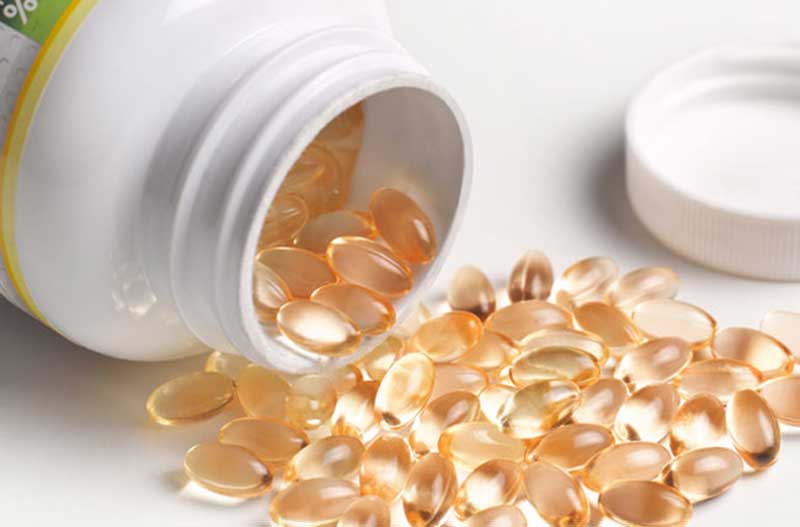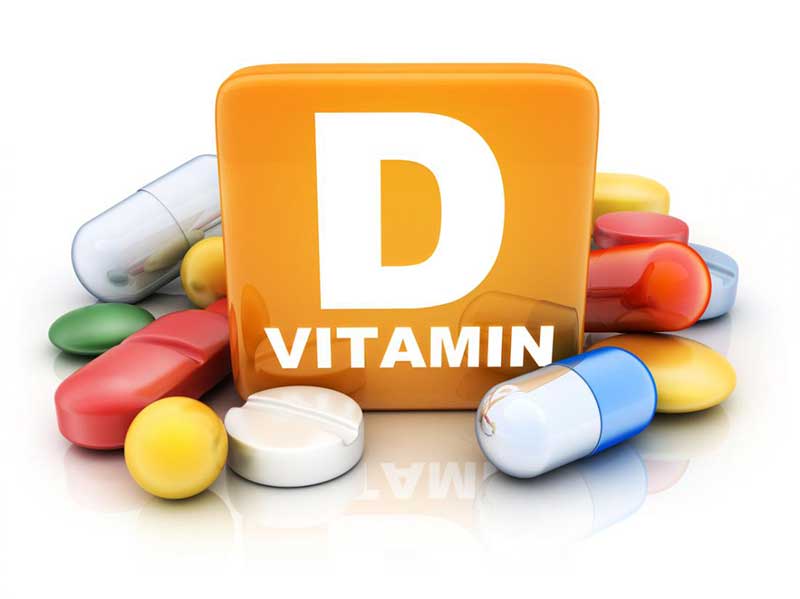The Amazing Benefits of Vitamin D: A Complete Guide
Understanding Vitamin D
What is Vitamin D?
Vitamin D is a fat-soluble vitamin that the body needs to maintain optimal health. Unlike other vitamins, Vitamin D can be synthesized by the body when the skin is exposed to sunlight. It also exists in various food sources and can be obtained through dietary supplements.Types of Vitamin D
There are two primary forms of Vitamin D: Vitamin D2 (ergocalciferol) and Vitamin D3 (cholecalciferol). Vitamin D2 is commonly found in plant-based sources, while Vitamin D3 is primarily obtained from animal-based sources and is the type synthesized by our bodies when exposed to sunlight.
Sources of Vitamin D
Sunlight
The most natural and efficient way to obtain Vitamin D is through exposure to sunlight. When your skin is exposed to UVB rays from the sun, it triggers a process that converts cholesterol in the skin into Vitamin D3. However, it’s important to strike a balance between sun exposure and protecting your skin from harmful UV radiation.Food Sources
While sunlight is the primary source of Vitamin D, certain foods can contribute to your overall intake. Fatty fish like salmon, mackerel, and sardines are excellent sources of Vitamin D. Other options include fortified dairy products, egg yolks, and mushrooms.Supplements
If it’s challenging to get enough Vitamin D through sunlight and food sources alone, supplements can be a convenient option. Vitamin D supplements come in various forms, including capsules, tablets, and liquid drops, and can be an effective way to ensure you meet your daily requirements.The Role of Vitamin D in the Body
Bone Health
Vitamin D plays a crucial role in maintaining healthy bones. It aids in the absorption of calcium and phosphorus, which are essential minerals for bone strength. Sufficient Vitamin D levels help prevent conditions like rickets in children and osteomalacia and osteoporosis in adults.Immune System Support
Vitamin D also plays a vital role in supporting the immune system. It helps regulate immune responses and has been linked to a reduced risk of respiratory infections, autoimmune diseases, and certain types of cancer.Mental Health
Emerging research suggests that Vitamin D may have a positive impact on mental health. Low levels of Vitamin D have been associated with an increased risk of depression, seasonal affective disorder (SAD), and other mood disorders.Heart Health
Maintaining adequate Vitamin D levels may promote heart health and reduce the risk of cardiovascular diseases. Studies have found a link between Vitamin D deficiency and an increased risk of hypertension, heart attacks, and stroke.Vitamin D Deficiency
Causes of Deficiency
Several factors can contribute to Vitamin D deficiency. Limited sun exposure, especially in regions with little sunlight, having darker skin, obesity, and certain medical conditions can increase the risk of deficiency. Additionally, a lack of Vitamin D-rich foods in the diet or insufficient absorption can also lead to deficiency.Symptoms of Deficiency
Vitamin D deficiency can manifest in various ways. Common symptoms include fatigue, muscle weakness, bone pain, frequent infections, and a depressed mood. Severe deficiencies may result in conditions such as rickets in children or osteomalacia in adults.
Testing and Optimal Levels
Blood Tests
To determine your Vitamin D levels, a blood test known as the 25-hydroxy Vitamin D test is commonly performed. The test measures the concentration of Vitamin D in your blood and helps identify if you have a deficiency or need supplementation.Recommended Levels
The optimal level of Vitamin D in the blood can vary depending on the source, but generally, a level between 20 and 50 ng/mL (nanograms per milliliter) is considered adequate for most individuals. However, it’s important to consult with a healthcare professional to determine your specific needs.How to Get Enough Vitamin D
Sun Exposure Guidelines
To maintain healthy Vitamin D levels, it’s recommended to get moderate sun exposure. Aim for around 10-30 minutes of sun exposure on your face, arms, or legs, two to three times a week. However, factors such as skin type, geographic location, and time of day can influence the amount of sun exposure needed.Dietary Recommendations
Incorporating Vitamin D-rich foods into your diet can help increase your intake. Include fatty fish, fortified dairy products, eggs, and mushrooms in your meals. Additionally, consuming foods rich in calcium and phosphorus can enhance the absorption of Vitamin D.Supplement Usage
If getting enough Vitamin D through sunlight and diet is challenging, supplements can be a practical solution. Consult with a healthcare professional to determine the appropriate dosage and form of supplementation based on your specific needs.Safety Considerations
Excessive Intake of Vitamin D
While Vitamin D is essential for overall health, excessive intake can have adverse effects. Taking extremely high doses of Vitamin D supplements can lead to toxicity, causing symptoms such as nausea, vomiting, excessive thirst, and kidney problems. Always follow recommended dosages and consult with a healthcare professional if unsure.Interactions with Medications
Vitamin D supplements can interact with certain medications, including corticosteroids, antacids, and some cholesterol-lowering drugs. If you are taking any medications, it’s crucial to inform your healthcare provider to avoid potential interactions.Sleep Better with Healthy Habits
Vitamin D and Specific Populations
Vitamin D for Infants and Children
Vitamin D is particularly crucial for infants and children, as it supports proper bone development. Breastfed infants should receive a Vitamin D supplement recommended by their healthcare provider. Older children can obtain Vitamin D through sunlight, diet, and, if necessary, supplements.Vitamin D for Pregnant Women
Maintaining adequate Vitamin D levels is essential during pregnancy. It supports the development of the baby’s bones and teeth and may reduce the risk of complications such as preeclampsia. Pregnant women should consult with their healthcare provider to ensure they meet their Vitamin D requirements.Vitamin D for Older Adults
As we age, our skin becomes less efficient at synthesizing Vitamin D from sunlight. Older adults are also at a higher risk of Vitamin D deficiency. Regular testing and appropriate supplementation, if needed, can help older adults maintain optimal Vitamin D levels.Conclusion
Vitamin D is a remarkable nutrient with numerous benefits for overall health and well-being. From supporting bone health and the immune system to promoting heart health and mental well-being, its importance cannot be overstated. By ensuring adequate sun exposure, incorporating Vitamin D-rich foods into your diet, and considering supplementation when necessary, you can optimize your Vitamin D levels and enjoy the incredible benefits it offers.What are the Health Benefits of Avocado in Guacamole?
Avocado is a nutrient-packed fruit that brings numerous health benefits when combined with other ingredients to make guacamole. This ultimate avocado guacamole guide highlights why it is good for you. Avocado contains healthy fats, vitamins, and minerals that support heart health, boost digestion, and enhance nutrient absorption. Additionally, its high fiber content helps regulate blood sugar levels and promote a healthy weight. Enjoy the goodness of avocados in your guacamole for a delicious and nourishing treat.












